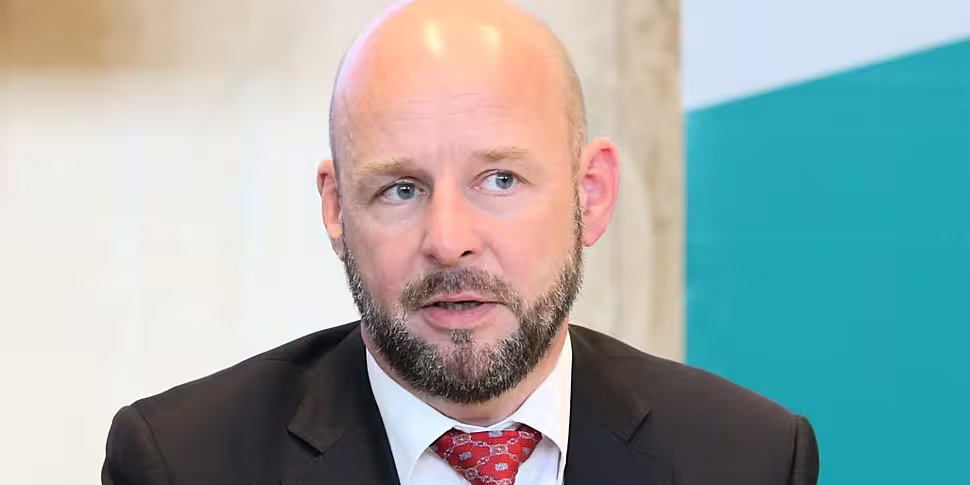A member of the National Public Health Emergency Team (NPHET) says even after pubs and restaurants re-open in Dublin, people do not have to go to them.
Level three measures in the capital mean only places offering takeaway or with outdoor seating are currently open.
Professor Philip Nolan told On the Record that when these restrictions are lifted, people should still limit their socialising.
"One in four cases across the country, one in three cases at least in Dublin, are community transmission - and it's happening in these settings where people gather.
"Unfortunately for the next few weeks at least, we're going to have to have nobody gather in those settings.
"And for some weeks thereafter, each and every one of us is going to have to acknowledge that 'Even if I can go out to a restaurant or a bar, I should limit the amount that I do that and I should limit the number of people I see there'".
"The simple issue is we're always going to have far many more outbreaks and cases in households than we will have in the other settings.
"So how does the disease get into households? It gets into households by different households mixing with each other, or individuals from different households.
"That could be in your house - which is why the restriction is only have people over from one other household - but equally we know from our own cases, from international evidence, that it also happens in bars, restaurants, gyms, anywhere that we get together.
It is reasonable to ask: why close restaurants and pubs if there are so few outbreaks associated with those environments? However, this is misreading and misinterpreting the data on outbreaks and clusters. 1/10 pic.twitter.com/REEUqoin12
— Professor Philip Nolan (@PhilipNolan_SFI) September 18, 2020
"Unfortunately this is a virus that likes us to socialise because it can spread, and unfortunately our response has to be not to socialise.
"So just take one case: if three or four of us went from three or four different households to a restaurant, spread the disease amongst that party - and perhaps to another party - we would have four, five, six separate household outbreaks with 10, 15, 20 cases associated with it.
"But only one, and a small number of cases, associated with the restaurant event itself.
"So we're going to see the disease amplified in households and lots of cases in households - but that doesn't mean the households are the problem.
"It means the mixing between households in other settings is the problem".
'260 cases on average per day'
More generally, he said: "I think the starting point is that the level of virus that we have in the community right now is too high, and particularly in Dublin."
"The way not to put strain on our testing system, and the way to allow sectors of our economy which are currently closed to re-open, is for each and every one of us to limit our contacts, drive down the level of virus in the community and then we can go back to the safe operation of our lives and of those businesses".
He says any potential spike in cases depends on where the reproduction number, the 'R' number, goes.
"In terms of the number of the cases, we're at 260 on average per day right now.
"It all depends on what the reproduction number is: we think it's between 1.3 and 1.7.
"If the reproduction number is 1.3, we would see 400 cases a day around the 14th of October.
"If it's as high as 1.8, for instance, we'd be closer to 1,500 - and that's in the nature of exponential growth.
"Very small changes in our behaviours in reproducing the virus lead to huge differences on where we'll be in a few weeks' time.
"If we get the reproduction number below one, down to let's say 0.9, then by the 14th of October we'll see around 150 cases a day.
"So it tails off very slowly, even if we're successful."
"You can see cases where the disease incubates for 14 days, but that's uncommon - the average is more like seven.
"Next week is set, but the week after [is] not".
On numbers expected next week, Prof Nolan said: "It's entirely possible that numbers could continue to go up at about 5% per day, so you could be touching or over 300 cases by the end of the week.
"What we need to be looking for as an index of success is that case numbers stabilise over the coming weeks.
"And if we get them stabilised, then we can perhaps relax restrictions a little bit - but each of us continue to be very, very careful and then drive numbers down.
"I think the public should be watching the numbers, not every day, but where the average is going - and seek encouragement if we can get in the next few weeks these numbers stabilised and trending back downwards.
"And then we'll know we have the disease back under control".
Schools 'a necessary priority'
Prof Nolan also said the re-opening of schools has not contributed to any big increase in cases.
"Schools are a necessary priority and there is no evidence that the re-opening of schools is associated with any significant level of transmission of the disease within schools.
"And certainly no acceleration of the number of cases overall nationally."
"What has been happening is that we've had 4% to 5% increase every day, give or take some noise, since the end of June.
"And that's not a linear increase, that's an exponential increase.
"So what you're seeing now is the routes of that increase - which are based in all of our behaviors throughout July and August and into September - beginning to accumulate in an exponential way.
"There's nothing that's happened in the last two or three weeks different to the preceding two or three weeks that's contributing to this acceleration".









